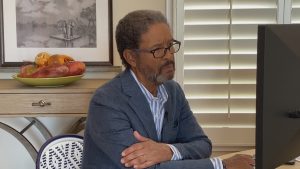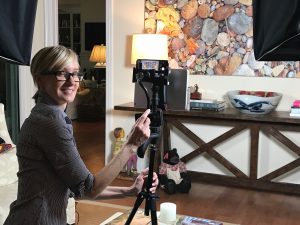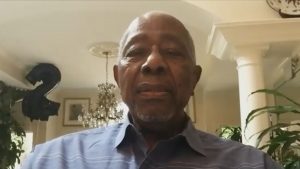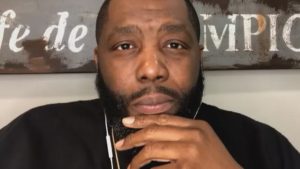Special Edition of HBO Sports’ Real Sports With Bryant Gumbel Addresses COVID-19, Systemic Racial Injustice
The production team scheduled, shot, edited 30+ interviews in two days
Story Highlights
The world is suffering from two diseases: a biological one, COVID-19, and a societal one that has troubled the globe for centuries, racism. Sports are sometimes seen as the great equalizer, beyond personal beliefs, and, on Tuesday, June 23, HBO Sports’ Real Sports With Bryant Gumbel addressed both pandemics, airing an episode comprising three dozen interviews recorded over the course of two days.

In two days, HBO Sports’ Bryant Gumbel spoke with 35 people about the COVID-19 pandemic and systemic racism.
“It all started with Bryant, because he really wanted to look at this moment,” says Nick Dolin, coordinating producer, HBO Sports. “[This show] was his idea: to look at how two plagues, systematic racism and COVID-19, upended the world of sports in an unprecedented way.”
In a time when live sports content is scarce, HBO Sports decided to push nuanced dialogue about these relevant topics into the spotlight. To pack an impactful punch, Dolin and his team helped Gumbel grab appointments with notable faces from different areas of sport, including Hank Aaron, Billie Jean King, Doc Rivers, Big 10 Commissioner Kevin Warren, and Mark Cuban.
“We were looking to get a broad spectrum that spread across the world of sports, academia, law enforcement, and activism,” says Dolin. “We assembled a list because there were a lot of people that Bryant wanted to connect with to understand their feelings and how they’re approaching [these topics in] their roles.”
After HBO Sports cast a wide net for inquiries, 35 high-profile and highly influential personalities were willing to provide their insights and opinions. With a large pool of participants, the biggest hurdle was figuring out how to schedule each interview into two consecutive days of shooting.
With 16 days from the genesis of the show to its eventual air date, interviews were done at 30-minute intervals on June 15 and 16. Though known for deploying high-quality equipment and technology to produce content, HBO Sports relied on a fairly simple setup: two iPhones (one over the shoulder shooting Gumbel’s computer screen, the other toward his face) in his Florida home, the recorded Zoom feed of the interviewee, and a shared Google Doc to track everyone’s progress.

At the Gumbel residence, Hilary Gumbel set the scene, uploaded media files, and helped with scheduling the interviews.
Even so, Dolin wanted to maintain the integrity that the show prides itself on. “We didn’t want them to be seen as two disconnected bodies. Our show and our storytelling are predicated on the connection between the interviewer and the subject.”
After completing these sessions, the production crew was up against the clock to fine-tune this trove of footage in six days. From a technical perspective, the rapid turnaround is particularly impressive given that crew members completed the job from their respective homes. To ensure that the show hit the airwaves on time, an efficient assembly line of 11 staffers (four coordinating producers, four editors, and three associate producers) had access to one central location from which they could add the video clips into their editing systems.
Out of all the team members involved, the one who was the most important to the process came from within Gumbel’s own home: his wife, Hilary.
“We couldn’t have done this without her,” says Dolin. “She was responsible for framing all of the shots, managing and uploading the media from the iPhones, and establishing the Zoom links to all 35 interviewees. As we worked through those 12-hour days, she was there every step of the way.”
HBO Sports’ message with this project is that, with the world in its current state, these conversations are meaningful and worthwhile and these issues need to be brought up, dissected, and analyzed in front of a broad audience. In terms of the COVID-19 crisis, everyone needs to do their part to curtail the spread for the well-being of others. The same can be said of a social problem that has plagued the U.S. for far too long.
“We’ve always looked for stories that reside at the intersection between sports and society and are more important than who won or lost a particular game,” says Dolin. “From the very beginning, Bryant has wanted us to look at issues that matter. Racial injustice and COVID-19 are very obvious topics to look at through the prism of sports.”


